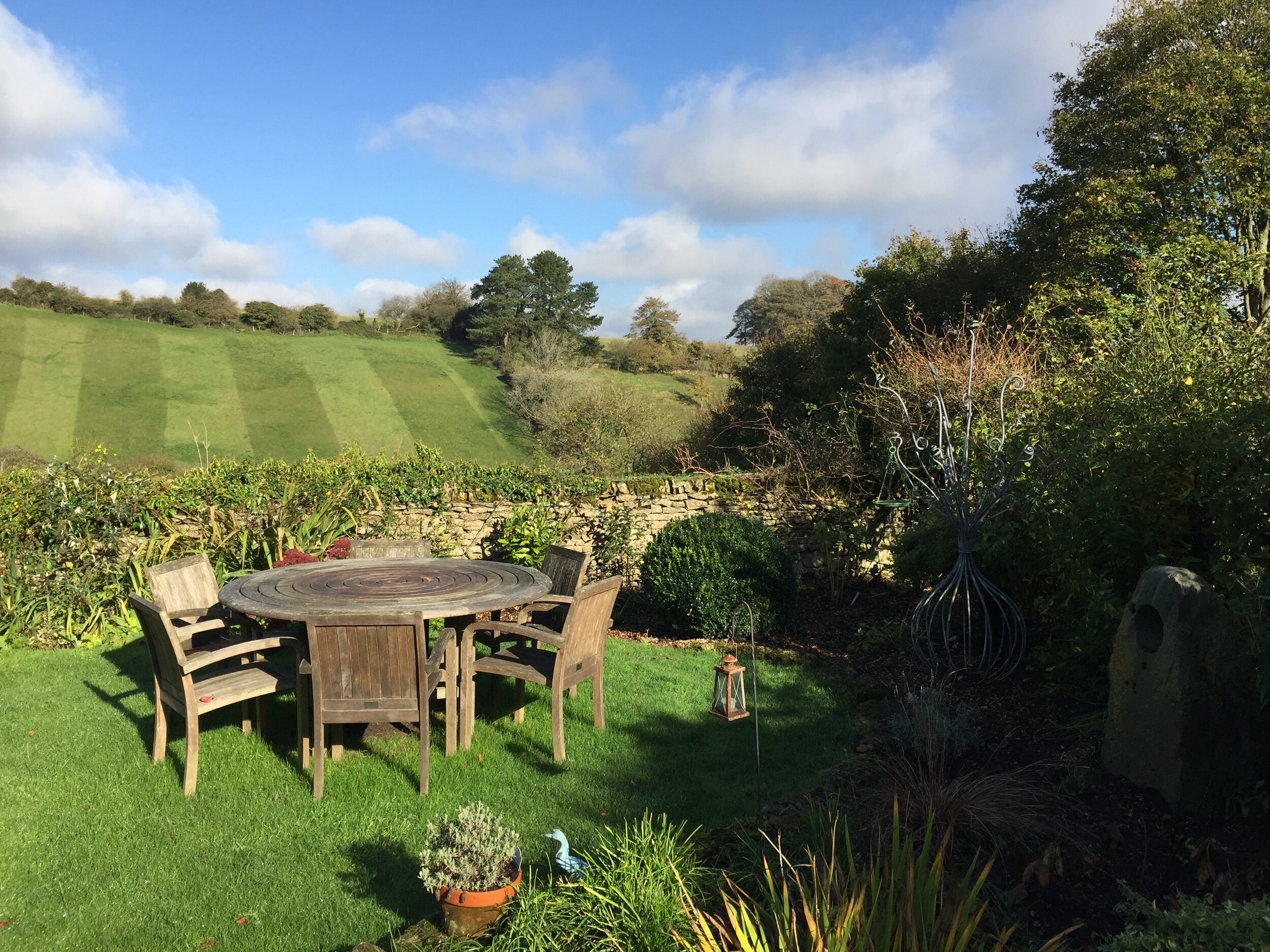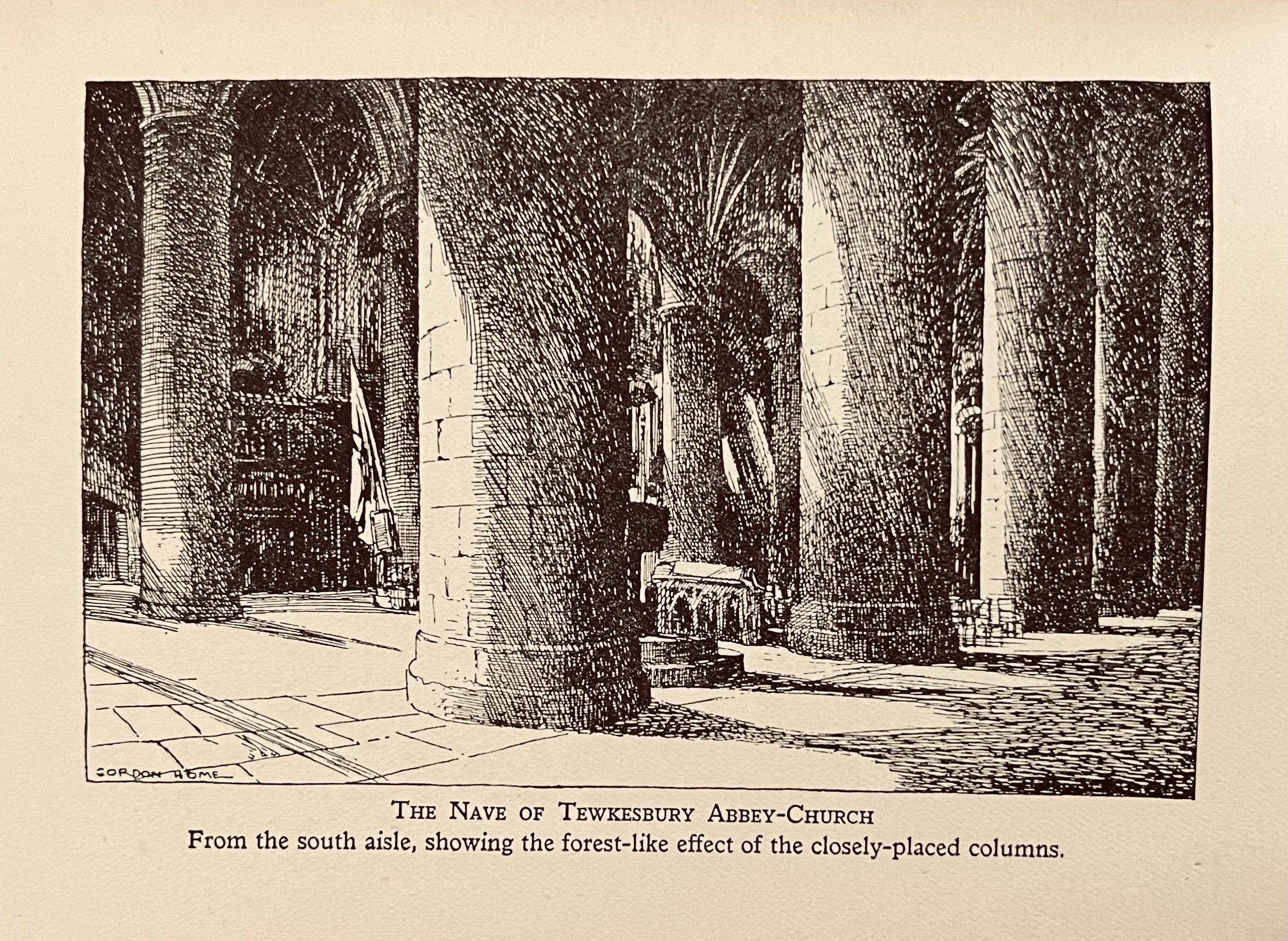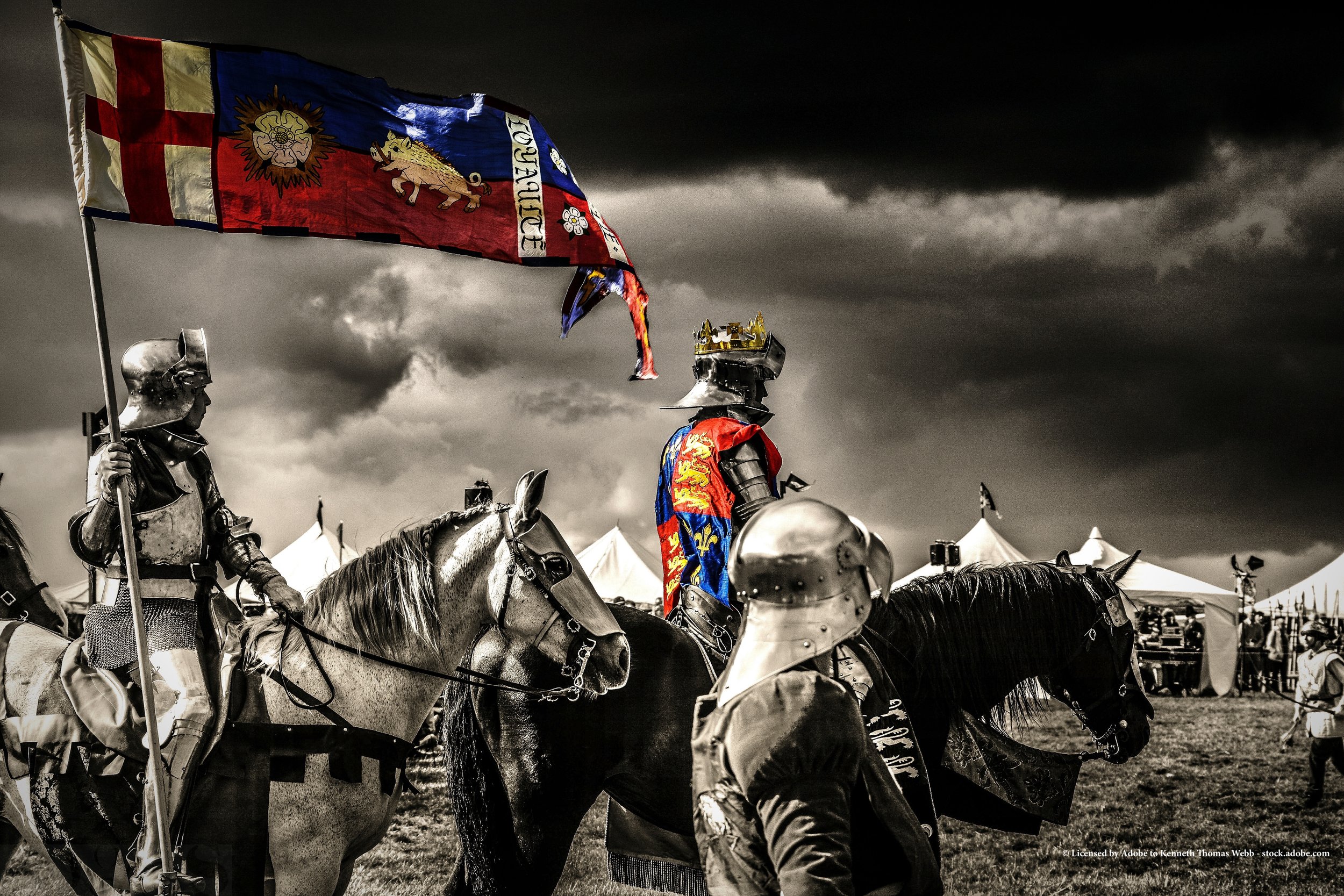Gloucestershire 6 ~ Tewkesbury Abbey ~ Second Edition (September 2024)

Gloucestershire 6
Tewkesbury Abbey ~ Second Edition
September 2024
PRELUDE
Earlier this year, around January 2023, in an Antiquarian Bookshop in my local town in North Street Winchcombe, I stumbled upon a delightful title published in MCMXXV (1925), Gloucester Tewkesbury & District in the Cathedrals, Abbeys & Famous Churches Series. This book, authored by Edward Foord, reviews Gloucester Cathedral and Tewkesbury Abbey. Written twenty-eight years before I was born, nevertheless, it is in the style by which I was taught to read and to write English. What a delight! What a glimpse too, a reminder, that I was once part of a world that has long since gone. Time never stands still.
One part caught my eye. It relates to the events on the 4th and 5th May 1471 in the Abbey immediately following the terrible Battle of Tewksbury. Many are familiar with the verses penned late Autumn afternoon, 2 October 2016.
The author’s final note, on page 104 of the book before leaving the battle behind, caused me to think hard on the poem Tewkesbury Abbey. This in turn has led to an absorbing and ongoing detailed research of the Wars of the Roses. In due course, I will amend the poem. It is sufficient here, for the moment, to quote Edward Foord:
“Beneath the pavement lie many victims of the Battle of Tewkesbury, and of the grim vengeance of the victorious king, and there, also, repose the mortal remains of two princes who fought on opposite sides on that fatal day: Edward (Lancastrian), Prince of Wales, slain on the field, and his cousin and enemy - perhaps his actual slayer - George, Duke of Clarence - foes and strangers in life united at last in death. In truth, there are many memories clustered beneath the solemn vaulting of Tewkesbury Abbey.”
The Poem
Sunday, a brisk Autumn afternoon,
The bustle of the high street,
The peace of the town …
Bustling yes;
Oppressive no.
A footprint of history,
The welcome palpable.
Small and quiet,
Yet increasingly attractive,
A town on two streets,
And the pull to live here…
To walk these streets again.
Not from the moorings as in olden days
But now, perhaps, in residence.
But where?
The Abbey grounds are silent
This brisk Autumn afternoon,
Except for birdsong,
Announcing shortly evensong.
Nature’s Evensong proclaiming
the approach of humanity’s evensong.
Walking the grounds,
The delight of the gardens,
The borders,
The great and high trees,
Some of which must stand here
On the day the town beheld
The horror of three pitched battles
Five centuries past
At Gupshill Manor,
a stones-throw...
Two ancient houses
White and Red,
Two Roses in contention
York and Lancaster.
Two warring families!
Two contenders for the English Crown
brought blood to meadow,
the seeping effect of blood through cloth
on humble families forced to choose
between two arrogant families,
who each believed they did God's will
and, moroever, did mistakenly believe
they each had God's ear!
But neither had ever had His Ear!!
Picturing hapless souls,
many wounded
seeking sanctuary
within these hallowed precincts,
Some successful for a time...
But when the king
Victorious in his leadership
Reneged his treaty
Two days after his Thanksgiving
for his bloody Victory,
Bloody Meadow reached out
Across three adjacent meadows,
Seeping into this ancient Abbey
Congealing these ancient stones,
These mighty pillars,
and even around and onto
The Great High Altar
... the bloody precincts of its cloisters...
An act so barbarous,
The Abbey deconsecrated!
Townspeople, beyond comprehension, shocked …
But in time, times and half again, reconsecrated.
But those were former times.
At Evensong this Autumn day
None of the horror of former times
is present.
But in prayers a millennia-old
Present day horrors
Press home the Congregation
And notwithstanding History,
An incredible Peace
Now rests upon the Abbey,
And o'er the town, even.
Now, I live at peace within her Diocese
And how good to walk the Abbey Precincts
And give thanks in Evensong
to One Who stands somewhere
Yes, somewhere and, moreover,
outside time.
How good that my faith
Rises above religiosity
I do not need ancient Roman frailty
To receive bread and wine,
but follow my father
Yes, he who with my mother
brought me into this world,
… … in line.
Of religion,
Of the Bible,
Of the Qur’an,
Of other mystic writings,
No. The light of Truth is absent.
The presence of death.
Of Nature,
Now there’s another thing.
In Nature Alone
Life do I find,
And the Promise,
The Guarantee
Of Tomorrow.
Kenneth Thomas Webb | Ian Bradley Marshall
1 June 2023
All Rights Reserved
LIVERPOOL
© 2016 Kenneth Thomas Webb © 2024 Ian Bradley Marshall
Last revised 23 July 2022 and Rewritten 19 June 2024
First Written 2 October 2016
Digital Art by © 2023 KTW
Author Note
Originally penned Sunday, 2 October 2016, at Pittville 6 pm - a moment of quiet reflection.
Tewkesbury Abbey and Grounds
Images from my Private Collection taken by me
Tewkesbury Abbey in the Twilight 6.31 pm Sunday, 20 November 2016, shortly before Choral Evensong
and
at 12.30 pm Sunday, 21 April 2019 at the end of the Easter Sunday Morning Service and Eucharist (with some eight-hundred members of the Congregation)
Saint Saens Solo Organ Arrangement of the Finale by Jonathan Scott
Saint Saens Symphony Finale ~ Auckland New Zealand Symphony Orchestra
Copper Beech planted in 1588 in the year of the Spanish Armada and its defeat by Queen Elizabeth I
This Copper Beech, in the grounds of Tewkesbury Abbey is 432 years old (as of 2020), being planted in 1588, the year Queen Elizabeth I withstood Spain and whose Navy under the command of Sir Francis Drake defeated the Spanish Armada. In 1940, the Copper Beech was already a mighty 352 years of age and little different from what it is 79 years on when Hitler was very much intent on invasion.
Tewkesbury Abbey is, an infrequent place of worship, I live within its Diocese. Infrequent, because I am outside the box and do not like falling into the pattern of attendance that all too quickly moves from faith to religiosity.
There is a light and countenance about it that is almost surreal;
a place of praise, a place of deep and quiet and private contemplation,
a place where, unlike our Cathedral, we can look from the furthest point in the Nave to the High Altar with a complete and unimpeded view.
Each to their own, but for me certainly, the high point of any service is when the Reverend Canon or Reverend Bishop declares the blessing from the High Altar.
Nevertheless, I have a very liberal Twenty-First Century approach
and it is within that perspective that I view all Scripture
which, as one can imagine, means I’m often ‘out-of-step’ or ‘outside-the-box’.
One has only to visit A Thousand Dimensions, or read From Death and Back to Life ~ A Quantum Leap, to see that the old and new do juxtapose and align if we have an open mind to permit such alignment.
Ken Webb is a writer and proofreader. His website, kennwebb.com, showcases his work as a writer, blogger and podcaster, resting on his successive careers as a police officer, progressing to a junior lawyer in succession and trusts as a Fellow of the Institute of Legal Executives, a retired officer with the Royal Air Force Volunteer Reserve, and latterly, for three years, the owner and editor of two lifestyle magazines in Liverpool.
He also just handed over a successful two year chairmanship in Gloucestershire with Cheltenham Regency Probus.
Pandemic aside, he spends his time equally between his city, Liverpool, and the county of his birth, Gloucestershire.
In this fast-paced present age, proof-reading is essential. And this skill also occasionally leads to copy-editing writers’ manuscripts for submission to publishers and also student and post graduate dissertations.








